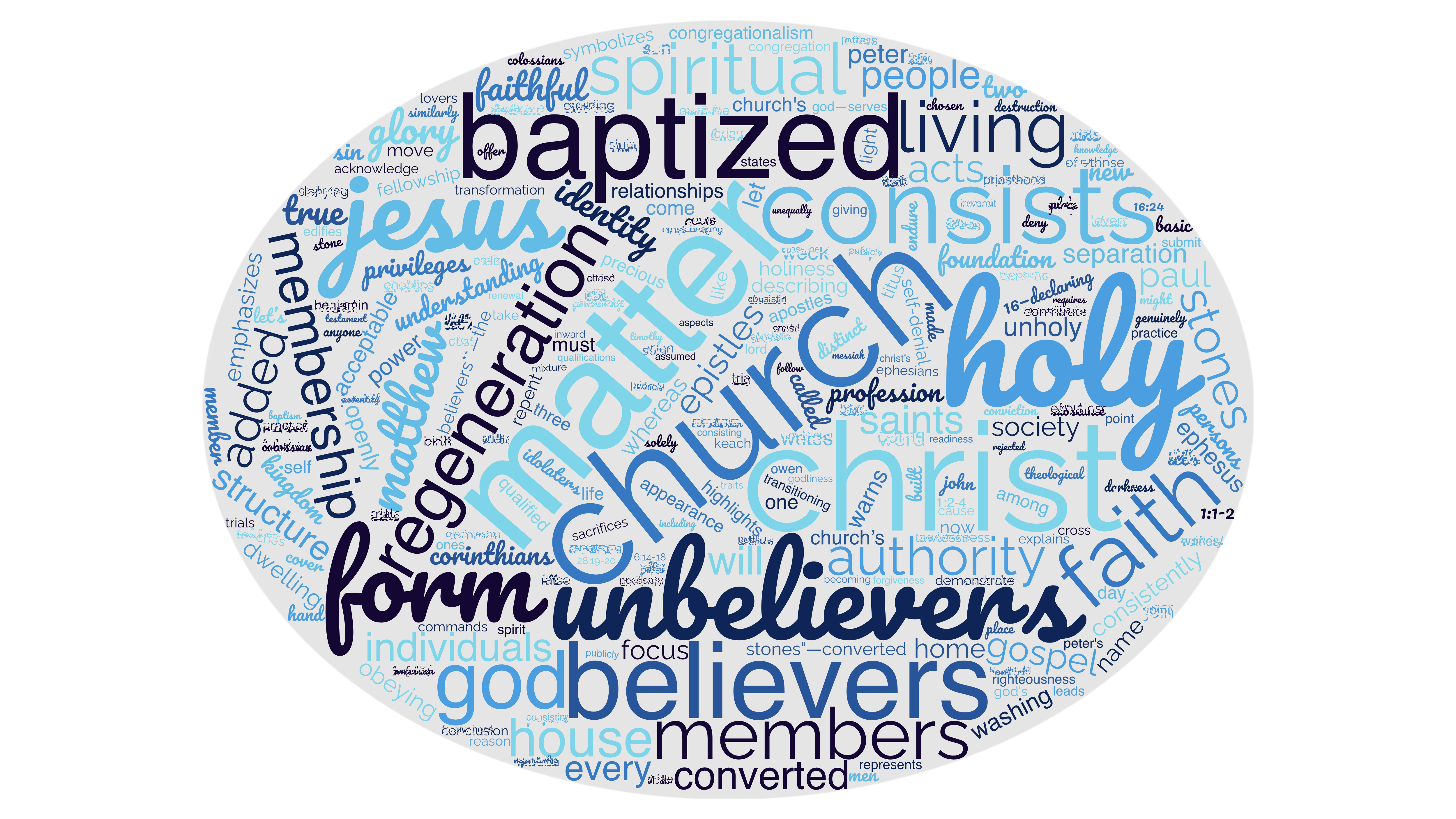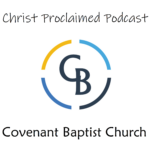Matter And Form, Pt.1


“Matter And Form, Pt.1” is a Sunday School lesson from the series Baptistic Congregationalism taught from Selected Scriptures by Noah Olguin, pastor of Covenant Baptist Church in New Berlin, Wisconsin – a confessional Reformed Baptist church subscribing to the 1689 London Baptist Confession of Faith.
After establishing the theological foundation for congregationalism, we will shift our focus to other aspects. In The Glory of a True Church, Benjamin Keach writes, “Every home consists of both matter and form.” Similarly, the church, as the house of God, also consists of matter and form.
The Church as a Home: Matter and Form
John Owen explains that the matter of the church is the people it consists of—those who form its substance. The form, on the other hand, is the reason, cause, and structure of the relationships among these people, giving the church its identity and enabling its privileges and authority. Today, we will focus on the matter of the church.
The Matter of the Church: Who Are Its Members?
The church is a congregation made up of converted persons. Unbelievers are not true members of the church. The Kingdom of God, which the church represents, consists only of those who are genuinely converted.
1 Peter 2: Living Stones in a Spiritual House
1 Peter 2:4-5 states:
“As you come to him, a living stone rejected by men but in the sight of God chosen and precious, you yourselves like living stones are being built up as a spiritual house, to be a holy priesthood, to offer spiritual sacrifices acceptable to God through Jesus Christ.”
The church is a spiritual house, and its matter is “living stones”—converted individuals, not unbelievers or false believers.
2 Corinthians 6: Separation from Unbelievers
Paul writes in 2 Corinthians 6:14-18:
“Do not be unequally yoked with unbelievers. For what partnership has righteousness with lawlessness? Or what fellowship has light with darkness?”
God’s people are called to be separate from unbelievers. The church is a holy society, a dwelling place for God, consisting solely of believers.
Acts 2: Baptized Believers Added to the Church
Acts 2:41-44 highlights the early church’s practice:
“So those who received his word were baptized, and there were added that day about three thousand souls.”
The church consists of baptized believers, those who have publicly professed faith in Christ.
The Apostolic Epistles: Letters to the Saints
The New Testament epistles consistently address believers—the “saints” or “holy ones.” For example:
- Ephesians 1:1-2: “To the saints who are in Ephesus and are faithful in Christ Jesus.”
- Colossians 1:2-4: “To the saints and faithful brothers in Christ at Colossae.”
The apostles assumed that church members were believers, not a mixture of believers and unbelievers.
The Glory of the Church: Holiness and Separation
The church’s glory lies in its holiness. A holy church edifies its members, whereas a worldly church leads to destruction. Paul warns against including unholy individuals in the church in 2 Timothy 3:1-5, describing traits of the unholy, such as being lovers of self and having an appearance of godliness but denying its power.
Membership Qualifications: Becoming a Citizen of the Church
Regeneration: A New Birth
Titus 3:3-5 emphasizes the necessity of regeneration, describing how God saves us through the “washing of regeneration and renewal by the Holy Spirit.” Baptism symbolizes this inward transformation.
Open Profession of Faith
To join a church, one must openly confess Jesus Christ as Lord, acknowledge His authority, and commit to obeying His commands (Matthew 28:19-20).
Knowledge of the Gospel
A potential member must demonstrate a basic understanding of the gospel. Peter’s confession in Matthew 16—declaring Jesus as the Messiah and Son of God—serves as the foundation of the church’s authority.
Self-Denial and Cross-Bearing
Jesus teaches in Matthew 16:24: “If anyone would come after me, let him deny himself and take up his cross and follow me.” Membership requires understanding the cost of discipleship and a readiness to endure trials.
Conviction of Sin and Faith in Christ
Acts 2:38 calls for repentance and faith:
“Repent and be baptized every one of you in the name of Jesus Christ for the forgiveness of your sins.”
Unbelievers, idolaters, and those unwilling to submit to Christ’s laws are not qualified for membership. They may attend and hear the Word but are not part of the church’s life or privileges.
Conclusion: The Matter of the Church
The matter of the church consists of converted individuals who are baptized upon profession of faith. The church is a holy society, distinct from the world. Next time, we will examine the form of the church and how its relationships and structure contribute to its identity.

Leave a Reply